Burgh Last Name Origin, History, and Meaning
Where did the surname Burgh come from? What does the surname Burgh mean? Discover the history and meaning of the last name Burgh and family migration on YourRoots Map.
Surname Burgh Origin: What does the last name Burgh mean?
The surname Burgh is of Anglo-Norman origin, first appearing in records from England in the early 11th century. It remained closely associated with England from the 12th to the 18th centuries, with YourRoots data also showing Burgh family records in countries like Ireland and France, indicating global spread over the centuries.
YourRoots data confirms the global presence of the Burgh surname by the 20th century, with significant records in England, Ireland, and the United States. The Burgh surname continues to be prominent in England and is found in many countries worldwide, showcasing its enduring legacy and widespread distribution.
Burgh Last Name History: Where did the last name Burgh come from?
Origin of Burgh Surname: Where does the last name Burgh originate from?
According to YourRoots data, the surname Burgh first appeared in records from England (United Kingdom) around the early 11th century. Please note that this reflects only YourRoots data for the exact Burgh spelling and does not include other record sources or surname variations.
History of the Last Name Burgh: What does the Burgh surname history look like in the early days?
The Burgh surname remained closely associated with England (United Kingdom) from the 12th to the 18th centuries. YourRoots data also shows Burgh family records in countries like Ireland and France, indicating global spread over the centuries.
Global Spread: Where can we find the Burgh surname today?
By the 20th century, the volume of records with the Burgh surname grew significantly in England (United Kingdom), Ireland, and the United States. The Burgh surname remains prominent in England (United Kingdom) and appears in many countries worldwide.
Explore Burgh last name heritage and Burgh surname origin based on YourRoots Map data
 VIEW THE ORIGIN OF SURNAME BURGH
VIEW THE ORIGIN OF SURNAME BURGHFamous People With Burgh Surame?
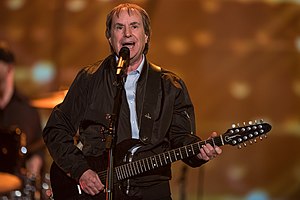
Chris de Burgh
Christopher John Davison (born Oct 15, 1948) is a British-Irish singer-songwriter known as Chris de Burgh. He gained fame with his 1986 hit "The Lady in Red" and has sold over 45 million albums worldwide. De Burgh's music is popular in countries like Norway and Brazil, with his albums topping charts internationally. He began his music career in the 1970s and continued to release successful albums into the 1980s. De Burgh's unique blend of pop and rock music has garnered him a dedicated fan base and critical acclaim throughout his career.
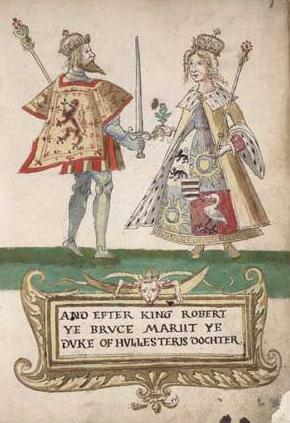
Elizabeth de Burgh
Elizabeth de Burgh (c. 1289 – 27 Oct 1327) was the queen consort of King Robert the Bruce of Scotland. Born in Ireland to a powerful noble family, she faced political turmoil and imprisonment during her husband's reign. Despite her struggles, she raised three children who reached adulthood. Elizabeth tragically passed away at the age of approximately 38 after a fall from her horse. Her body was transported for burial at Dunfermline Abbey, a historic resting place for Scottish royalty.
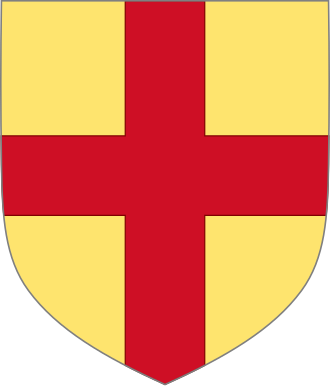
House of Burgh
The House of Burgh (c.1160–1205/6) is an Irish family descending from the Anglo-Norman de Burgh dynasty. They played a prominent role in the Anglo-Norman invasion of Ireland, attaining various earldoms and providing queens consort of Scotland and Thomond. The family's descendants include the Lords of Connaught, Earls of Ulster, and Clanricarde. Elizabeth, a descendant, married King Robert I of Scots, while another Elizabeth wed King Edward III's son, Lionel of Antwerp, 1st Duke of Clarence. Their lineage extends to the Yorkist Plantagenet Kings of England and the current British royal family. The de Burghs were led by four brothers in the 12th and 13th centuries, each contributing significantly to the family's legacy.
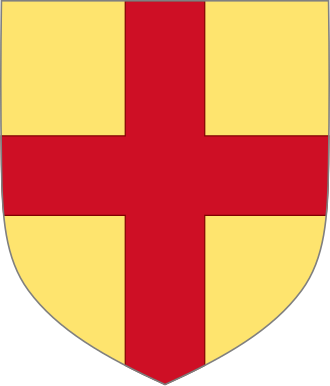
William de Burgh
William de Burgh (c. 1160–winter 1205/06) was a prominent figure in Irish history, known for founding the House of Burgh in Ireland. He played a crucial role in the annexation of the kingdom of Limerick and was appointed Governor of Limerick by Henry II of England. William led military campaigns in Desmond and Connacht, eventually becoming the "Lord of Connacht" in 1203. His marriage to the daughter of the King of Thomond strengthened his alliances. Despite his military successes, his plundering of Connacht led to his demise. William de Burgh was interred at the Augustinian Priory of Athassel in Golden, where he was remembered for his controversial actions.
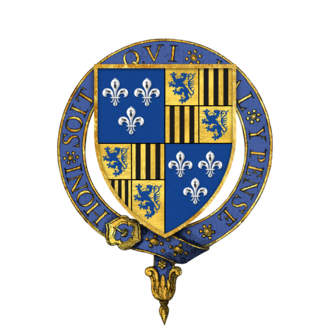
Thomas Burgh, 1st Baron Burgh
Thomas Burgh, 1st Baron Burgh (c. 1488 – 28 February 1550) was an English peer known for his service as Lord Chamberlain to Anne Boleyn and his involvement in the trial of Anne Boleyn in 1536. He was also a knight who served as High Sheriff of Lincolnshire, with a country seat at Gainsborough Old Hall. Burgh was opinionated on religion and supported the new reformed religion in England. Despite his overbearing nature, Burgh left a legacy through his children, including his son William who succeeded him as the 2nd Baron Burgh. His life was filled with intrigue, loyalty, and controversy in the Tudor era.
All images displayed on this page are sourced from Wikipedia or Wikimedia Commons.We use these images under their respective Creative Commons or public domain licenses. Wherever applicable, author attributions and license information are provided. If you believe an image is used incorrectly or outside its license terms, please contact us so that we can review and correct the issue.




.png)